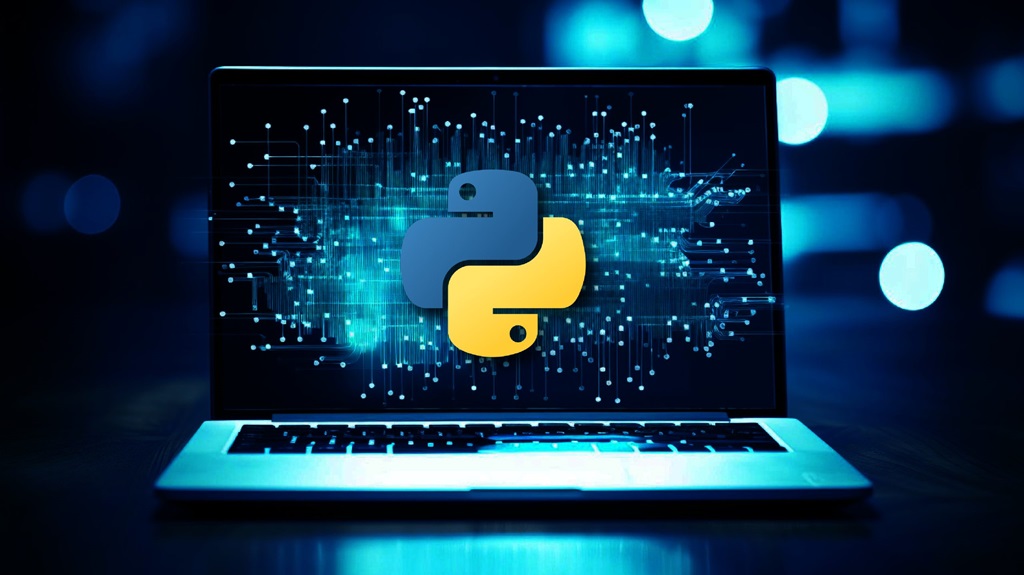
Data Science’s Secret Weapon: Why Python is a Non-Negotiable for Modern Businesses
Data is the new oil, and Python is the refinery. In the digital age, businesses are swimming in data—customer behavior, market trends, operational metrics—and the ability to extract meaningful insights from this data is a game-changer. Python, a versatile and user-friendly programming language, has emerged as the data scientist’s Swiss Army knife, empowering businesses to harness the power of their data and gain a competitive edge.
Why Python? It’s More Than Just a Programming Language
Python’s rise to prominence in data science isn’t accidental.
Several key factors make it the language of choice for businesses seeking to unlock the potential of their data:
- Simplicity and Readability: Python’s syntax is clean and intuitive, resembling plain English. This makes it easier for non-programmers to understand and even contribute to data analysis projects.
- Rich Ecosystem of Libraries: Python boasts a vast collection of libraries and frameworks specifically designed for data science tasks. Libraries like Pandas, NumPy, SciPy, and Matplotlib provide powerful tools for data manipulation, statistical analysis, and visualization.
- Machine Learning Powerhouse: Python’s libraries like Scikit-learn and TensorFlow make it the go-to language for building and deploying machine learning models. These models can automate tasks, make predictions, and uncover hidden patterns in data.
- Community and Support: Python has a vibrant and supportive community of developers, data scientists, and enthusiasts. This means a wealth of resources, tutorials, and forums are available to help businesses get started and overcome challenges.
Unlocking Business Value with Python
The applications of Python in the business world are vast and far-reaching.
Here are just a few ways businesses can leverage Python to gain a competitive advantage:
- Customer Insights: Analyze customer data to understand preferences, identify trends, and personalize marketing campaigns. Python can help segment customers, predict churn, and optimize pricing strategies.
- Operational Efficiency: Optimize supply chains, predict equipment failures, and streamline processes. Python-powered analytics can identify bottlenecks, improve resource allocation, and reduce costs.
- Risk Management: Build models to assess credit risk, detect fraud, and manage financial portfolios. Python can help businesses make informed decisions, mitigate risk, and enhance compliance.
- Product Development: Analyze user feedback, A/B test new features and personalize recommendations. Python can drive innovation, improve customer satisfaction, and increase revenue.
Related: Setting up an Online Shop – How to Make it a Success
Case Studies: Python in Action

Real-world examples illustrate the power of Python in business:
- Netflix: Uses Python to analyze viewer data, recommend personalized content, and optimize streaming quality.
- Amazon: Employs Python to power its recommendation engine, forecast demand, and optimize logistics.
- Target: Leverages Python to analyze customer shopping patterns and send targeted promotions.
- Airbnb: Utilizes Python to personalize search results, predict pricing, and detect fraudulent listings.
Getting Started with Python for Your Business
If you’re ready to harness the power of Python for your business, here’s a roadmap:
- Assess Your Needs: Identify the specific business problems you want to solve with data science.
- Build Your Team: Hire or train data scientists with Python expertise. Alternatively, consider partnering with a data science consulting firm.
- Choose Your Tools: Select the Python libraries and frameworks that best suit your needs.
- Start Small: Begin with a pilot project to demonstrate the value of Python.
- Scale Up: Gradually expand your Python-powered data science initiatives as you see results.
The Future is Python
The demand for Python skills in the business world is soaring. As businesses increasingly recognize the value of data-driven decision-making, Python’s role in unlocking that value will only become more critical. Investing in Python expertise today is not just a smart move—it’s a necessity for staying competitive in the data-driven economy of tomorrow.



Average Rating